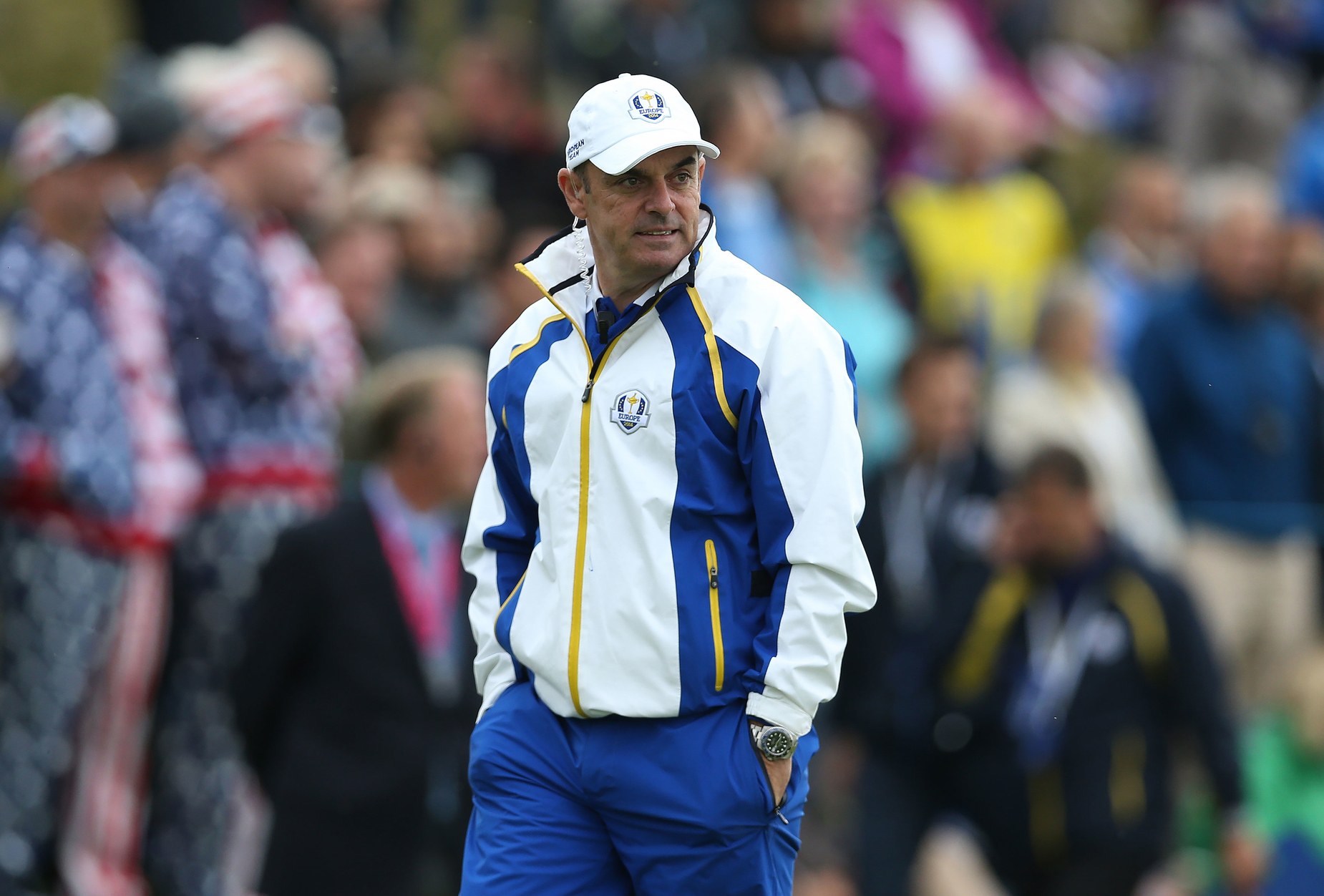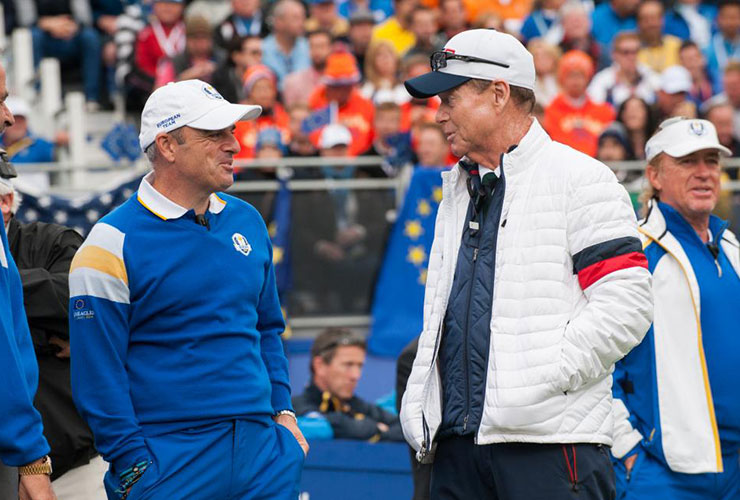Montana Pritchard/PGA of America
On paper, there is nothing especially intriguing about the 2014 Ryder Cup. Historians looking at a list of scores 100 years from now will see nothing more than the continuation of a pattern — a European blowout win at home. And because the final score was so lopsided, these hypothetical historians won’t even be able to read about a hero on the course, or to pinpoint a critical dramatic moment. Without knowing the details of how the blowout came to be, it would be easy to conclude that the Gleneagles Ryder Cup was, well … boring. In fact, those who remember 2014 will recall that this event teemed with melodrama, the most memorable bit playing out when Phil Mickelson made a very public rebuke of US captain Tom Watson — while Watson was sitting on the same stage — during the post-match press conference. If the score on the course looked rather bland by the time Sunday singles came to an end, the intrigue behind closed doors was exquisite.
On one side, you had a US system reeling from decades of losing, the particular heartbreak of blowing a big Sunday lead to the Europeans at home at Medinah in 2012 still fresh in everyone’s collective minds. That led Ted Bishop, PGA of America president, to make the maverick move of naming Watson to the captaincy in 2014. Not only was Watson beloved in Scotland as a five-time Open winner, but he was also the last American captain to win on European soil, back in 1993. In theory, the appointment made sense.
The problem was, Watson was seriously disconnected from modern players, and his instinctual approach to strategy and leadership would end up being very much at odds with what the Ryder Cup required. And it was Watson’s bad luck that on the European side, the captain who survived a tense nomination process would prove to be a brilliant strategist who plotted out his team’s manoeuvers to the last detail. Paul McGinley’s candidacy was challenged by both Darren Clarke and Colin Montgomerie, but when he was chosen, he set to work unleashing a comprehensive two-year battle plan designed to come together in Scotland.

Paul McGinley. Ian MacNicol
Watson had no idea what he was in for, and the ensuing debacle was notable for how precisely it showcased America’s Ryder Cup shortcomings in the most unflattering light. Decades of mismanagement were magnified, and when it was over, a public confrontation almost felt inevitable. And the great irony about Gleneagles is that by delivering such a thorough beating to the Americans, Paul McGinley and the Europeans may have woken them up for good.









